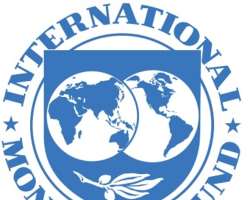IMF Executive Board Approves Three-Year PSI for Senegal

DAKAR, Senegal, June 25, 2015/African Press Organization (APO)/ -- The Executive Board of the International Monetary Fund (IMF) today approved a three-year Policy Support Instrument (PSI)1 for Senegal. The PSI supports implementation of a three-year program of macroeconomic reforms designed to advance the Plan Sénégal Emergent (PSE), the authorities' strategy to increase growth and reduce poverty while preserving macroeconomic stability and debt sustainability. The authorities plan to focus on increasing tax revenues by broadening the tax base, as well as on rationalizing current expenditures to create fiscal space for financing infrastructure and social expenditure. Attention will be paid to the quality of expenditure, including investment, and to strengthening public financing, transparency, and economic governance. The authorities intend to accelerate structural reforms to foster a more attractive business environment, thereby promoting development of the private sector.
The authorities aim to achieve an economic growth rate of at least 5 percent in 2015 compared with 4.7 percent in 2014, while maintaining the inflation rate below 2 percent. Sustained efforts to scale back government spending and to improve mobilization of tax revenues will allow for an increase in investment and social expenditures and a decrease in the budget deficit to 4.7 percent. Medium-term targets include increasing the GDP growth rate to over 6 percent, containing inflation below 3 percent, and reducing the budget deficit to 3.6 percent by 2017, with the goal of reducing it to 3 percent by 2018. Export growth should reduce the current account deficit from 9 percent of GDP in 2014 to 6.5 percent of GDP in 2017.
Following the Executive Board's discussion, Mr. Mitsuhiro Furusawa, Deputy Managing Director and Acting Chair issued the following statement:
“The new Policy Support Instrument (PSI) supports a three-year program of macroeconomic reforms embedded in a development strategy for inclusive growth and poverty reduction (Plan Senegal Emergent—PSE). The growth goals of above 7 percent enshrined in the PSE are achievable provided reforms are accelerated, broadened and deepened. Early signs indicate positive momentum owing to progress in reform implementation and favorable external factors. However, more remains to be done to solidify this momentum.
“The authorities are committed to meeting the target of the West African Economic and Monetary Union of a fiscal deficit of 3 percent of GDP by 2018 and implementing structural reforms to boost economic growth, with the 2015 budget targeting a deficit of 4.7 percent of GDP. The authorities plan to strengthen tax and customs administration, and rationalize taxation of the financial sector and telecommunications. On expenditure, they will reorient lower priority spending, particularly public consumption, to provide room for higher public investment.
“Risks to the program are significant but manageable. The political calendar may pose some risks to the planned fiscal consolidation. Reforms to curb unproductive public consumption and raise expenditure efficiency may slow down and there could be revenue shortfalls. External downside risks include slower growth in partner countries, continued volatility in oil prices—which may affect revenue targets and subsidies—and spillovers from regional shocks including extremism and natural disasters. To mitigate these risks, the authorities plan to supplement the fiscal deficit targets with a debt anchor and will expand use of the precautionary reserve envelope to link project financing to reform progress.”
1 The PSI is an instrument of the IMF designed for countries that may not need, or want, IMF financial assistance, but still seek IMF advice, monitoring and endorsement of their policies. The PSI helps countries design effective economic programs that, once approved by the IMF's Executive Board, signal to donors, multilateral development banks, and markets the Fund's endorsement of a member's policies (see http://www.imf.org/external/np/exr/facts/psi.htm).
